- Home
- Linda Howard
A Game Of Chance m-5
A Game Of Chance m-5 Read online
A Game Of Chance
( Mackenzie - 5 )
Linda Howard
A New York Times Bestseller
Undercover agent Chance Mackenzie knew that the best way to capture an elusive terrorist was to use the man's daughter as bait, so he seduced Sunny Miller and set out to discover her father's whereabouts. Sunny's own innocence was questionable, and gaining her trust was nearly impossible. And even with all his experience and training, Chance found it difficult to overlook her beauty. However, Chance soon realized that Sunny wasn't running from him - she was running for her life, and she needed Chance's protection. But keeping Sunny safe would involve telling her the truth . . .
Game of Chance
Linda Howard
Mackenzie's- book 4
The Beginning
Coming back to Wyoming—coming home—always evoked in Chance Mackenzie such an intense mixture of emotions that he could never decide which was strongest, the pleasure or the acute discomfort. He was, by nature and nurture—not that there had been any nurturing in the first fourteen or so years of his life—a man who was more comfortable alone. If he was alone, then he could operate without having to worry about anyone but himself, and, conversely, there was no one to make him uncomfortable with concern about his own well-being. The type of work he had chosen only reinforced his own inclinations, because covert operations and anti-terrorist activities predicated he be both secretive and wary, trusting no one, letting no one close to him.
And yet… And yet, there was his family. Sprawling, brawling, ferociously overachieving, refusing to let him withdraw, not that he was at all certain he could even if they would allow it. It was always jolting, alarming, to step back into that all-enveloping embrace, to be teased and questioned—teased, him, whom some of the most deadly people on earth justifiably feared—hugged and kissed, fussed over and yelled at and… loved, just as if he were like everyone else. He knew he wasn't; the knowledge was always there, in the back of his mind, that he was not like them. But he was drawn back, again and again, by something deep inside hungering for the very things that so alarmed him. Love was scary; he had learned early and hard how little he could depend on anyone but himself.
The fact that he had survived at all was a testament to his toughness and intelligence. He didn't know how old he was, or where he had been born, what he was named as a child, or if he even had a name—nothing. He had no memory of a mother, a father, anyone who had taken care of him. A lot of people simply didn't remember their childhoods, but Chance couldn't comfort himself with that possibility, that there had been someone who had loved him and taken care of him, because he remembered too damn many other details.
He remembered stealing food when he was so small he had to stand on tiptoe to reach apples in a bin in a small-town supermarket. He had been around so many kids now that, by comparing what he remembered to the sizes they were at certain ages, he could estimate he had been no more than three years old at the time, perhaps not even that.
He remembered sleeping in ditches when it was warm, hiding in barns, stores, sheds, whatever was handy, when it was cold or raining. He remembered stealing clothes to wear, sometimes by the simple means of catching a boy playing alone in a yard, overpowering him and taking the clothes off his back. Chance had always been much stronger physically than other boys his size, because of the sheer physical difficulty of staying alive—and he had known how to fight, for the same reason.
He remembered a dog taking up with him once, a black-and-white mutt that tagged along and curled up next to him to sleep, and Chance remembered being grateful for the warmth. He also remembered that when he reached for a piece of steak he had stolen from the scraps in back of a restaurant, the dog bit him and stole the steak. Chance still had two scars on his left hand from the dog's teeth. The dog had gotten the meat, and Chance had gone one more day without food. He didn't blame the dog; it had been hungry, too. But Chance ran it off after that, because stealing enough food to keep himself alive was difficult enough, without having to steal for the dog, too. Besides, he had learned that when it came to survival, it was every dog for himself.
He might have been five years old when he learned that particular lesson, but he had learned it well.
Of course, learning how to survive in both rural and urban areas, in all conditions, was what made him so good at his job now, so he supposed his early childhood had its benefits. Even considering that, though, he wouldn't wish his childhood on a dog, not even the damn mutt that had bitten him.
His real life had begun the day Mary Mackenzie found him lying beside a road, deathly ill with a severe case of flu that had turned into pneumonia. He didn't remember much of the next few days—he had been too ill—but he had known he was in a hospital, and he had been wild with fear, because that meant he had fallen into the hands of the system, and he was now, in effect, a prisoner. He was obviously a minor, without identification, and the circumstances would warrant the child welfare services being notified. He had spent his entire life avoiding just such an event, and he had tried to make plans to escape, but his thoughts were vague, hard to get ordered, and his body was too weak to respond to his demands.
But through it all he could remember being soothed by an angel with soft blue-gray eyes and light, silvery brown hair, cool hands and a loving voice. There had also been a big, dark man, a half-breed, who calmly and repeatedly addressed his deepest fear. "We won't let them take you," the big man had said whenever Chance briefly surfaced from his fever-induced stupor.
He didn't trust them, didn't believe the big half-breed's reassurances. Chance had figured out that he himself was part American Indian, but big deal, that didn't mean he could trust these people any more than he could trust that damn thieving, ungrateful mutt. But he was too sick, too weak, to escape or even struggle, and while he was so helpless Mary Mackenzie had somehow hog-tied him with devotion, and he had never managed to break free.
He hated being touched; if someone was close enough to touch him, then they were close enough to attack him. He couldn't fight off the nurses and doctors who poked and prodded and moved him around as if he were nothing more than a mindless piece of meat. He had endured it, getting his teeth, struggling with both his own panic and the almost overpowering urge to fight, because he knew if he fought them he would be restrained. He had to stay free, so he could run when he recovered enough to move under his own power.
But she had been there for what seemed like the entire time, though logically he knew she had to have left the hospital sometimes. When he burned with fever, she washed his face with a cold cloth and fed him slivers of ice. She brushed his hair, stroked his forehead when his head ached so bad he thought his skull would crack; and took over bathing him when she saw how alarmed he became when the nurses did it. Somehow he could bear it better when she bathed him, though even in his illness he had been puzzled by his own reaction.
She touched him constantly, anticipating his needs so that his pillows were fluffed before he was aware of any discomfort, the heat adjusted before he became too hot or too cold, his legs and back massaged when the fever made him ache from head to toe. He was swamped by maternal fussing, enveloped by it. It terrified him, but Mary took advantage of his weakened state and ruthlessly overwhelmed him with her mothering, as if she were determined to pack enough loving care into those few days to make up for a lifetime of nothing.
Sometime during those fever-fogged days, he began to like the feel of her cool hand on his forehead, to listen for that sweet voice even when he couldn't drag his heavy eyelids open, and the sound of it reassured him on some deep, primitive level. Once he dreamed, he didn't know what, but he woke in a panic to find her arms around him, his head pillowed on her narrow shou
lder as if he were a baby, her hand gently stroking his hair while she murmured reassuringly to him—and he drifted back to sleep feeling comforted and somehow… safe.
He was always startled, even now, by how small she was. Someone so relentlessly iron-willed should have been seven feet tall and weighed three hundred pounds; at least then it would have made sense that she could bulldoze the hospital staff, even the doctors, into doing what she wanted. She had estimated his age at fourteen, but even then he was over a full head taller than the dainty woman who took over his life, but in this case size didn't matter; he was as helpless against her as was the hospital staff.
There was nothing at all he could do to fight off his growing addiction to Mary Mackenzie's mothering, even though he knew he was developing a weakness, a vulnerability, that terrified him. He had never before cared for anyone or anything, instinctively knowing that to do so would expose his emotional underbelly. But knowledge and wariness couldn't protect him now; by the time he was well enough to leave the hospital, he loved the woman who had decided she was going to be his mother, loved her with all the blind helplessness of a small child.
When he left the hospital it had been with Mary and the big man, Wolf. Because he couldn't bear to leave her just yet, he braced himself to endure her family. Just for a little while, he had promised himself, just until he was stronger.
They had taken him to Mackenzie's Mountain, into their home, their arms, their hearts. A nameless boy had died that day beside the road, and Chance Mackenzie had been born in his place. When Chance had chosen a birthday—at his new sister Maris's insistence—he chose the day Mary found him, rather than the perhaps more logical date that his adoption was final.
He had never had anything, but after that day he had been flooded with… everything. He had always been hungry, but now there was food. He had been starved, too, for learning, and now there were books everywhere, because Mary was a teacher down to her fragile bones, and she had force-fed him knowledge as fast as he could gulp it down. He was accustomed to bedding down wherever and whenever he could, but now he had his own room, his own bed, a routine. He had clothes, new ones, bought specifically for him. No one else had ever worn them, and he hadn't had to steal them.
But most of all, he had always been alone, and abruptly he was surrounded by family. Now he had a mother and a father, four brothers, a little sister, a sister-in-law, an infant nephew, and all of them treated him as if he had been there from the beginning. He could still barely tolerate being touched, but the Mackenzie family touched a lot. Mary—Mom—was constantly hugging him, tousling his hair, kissing him good-night, fussing over him. Maris, his new sister, pestered the living hell out of him just the way she did her other brothers, then would throw her skinny arms around his waist and fiercely hug him, saying, "I'm so glad you're ours!"
He was always taken aback on those occasions, and would dart a wary glance at Wolf, the big man who was the head of the Mackenzie pack and who was now Chance's dad, too. What did he think, seeing his innocent little daughter hug someone like Chance? Wolf Mackenzie was no innocent; if he didn't know exactly what experiences had molded Chance, he still recognized the dangerous vein in the half-wild boy. Chance always wondered if those knowing eyes could see clear through him, see the blood on his hands, find in his mind the memory of the man he had killed when he was about ten.
Yes, the big half-breed had known very well the type of wild animal he had taken into his family and called son, had known and, like Mary, had loved him, anyway.
His early years had taught Chance how risky life was, taught him not to trust anyone, taught him that love would only make him vulnerable and that vulnerability could cost him his life. He had known all that, and still he hadn't been able to stop himself from loving the Mackenzies. It never stopped scaring him, this weakness in his armor, and yet when he was in the family bosom was the only time he was completely relaxed, because he knew he was safe with them. He couldn't stay away, couldn't distance himself now that he was a man who was more than capable of taking care of himself, because their love for him, and his for them, fed his soul.
He had stopped even trying to limit their access to his heart and instead turned his considerable talents to doing everything he could to make their world, their lives, as safe as possible. They kept making it tougher for him; the Mackenzies constantly assaulted him with expansions: his brothers married, giving him sisters-in-law to love, because his brothers loved them and they were part of the family now. Then there were the babies. When he first came into the family there was only John, Joe and Caroline's first son, newly born. But nephew had followed nephew, and somehow Chance, along with everyone else in the Mackenzie family, found himself rocking infants, changing diapers, holding bottles, letting a dimpled little hand clutch one of his fingers while tottering first steps were made… and each one of those dimpled hands had clutched his heart, too. He had no defense against them. There were twelve nephews now, and one niece against whom he was particularly helpless, much to everyone else's amusement.
Going home was always nerve-racking, and yet he yearned for his family. He was afraid for them, afraid for himself, because he didn't know if he could live now without the warmth the Mackenzies folded about him. His mind told him he would be better off if he gradually severed the ties and isolated himself from both the pleasure and the potential for pain, but his heart always led him home again.
Chapter One
Chance loved motorcycles. The big beast between his legs throbbed with power as he roared along the narrow winding road, the wind in his hair, leaning his body into the curves with the beast so they were one, animal and machine. No other motorcycle in the world sounded like a Harley, with that deep, coughing rumble that vibrated through his entire body. Riding a motorcycle always gave him a hard-on, and his own visceral reaction to the speed and power never failed to amuse him.
Danger was sexy. Every warrior knew it, though it wasn't something people were going to read about in their Sunday newspaper magazines. His brother Josh freely admitted that landing a fighter on a carrier deck had always turned him on. "It falls just short of orgasm," was the way Josh put it. Joe, who could fly any jet built, refrained from commenting but always smiled a slow, knowing smile.
As for both Zane and himself, Chance knew there were times when each had emerged from certain tense situations, usually involving bullets, wanting nothing more than to have a woman beneath him. Chance's sexual need was ferocious at those times; his body was flooded with adrenaline and testosterone, he was alive, and he desperately needed a woman's soft body in which he could bury himself and release all the tension. Unfortunately, that need always had to wait: wait until he was in a secure position, maybe even in a different country entirely; wait until there was an available, willing woman at hand; and, most of all, wait until he had settled down enough that he could be relatively civilized in the sack.
But for now, there was only the Harley and himself, the rush of sweet mountain air on his face, and the inner mixture of joy and fear of going home. If Mom saw him riding the Harley without a helmet she would tear a strip off his hide, which was why he had the helmet with him, securely fastened behind the seat. He would put it on before sedately riding up the mountain to visit them. Dad wouldn't be fooled, but neither would he say anything, because Wolf Mackenzie knew what it was to fly high and wild.
He crested a ridge, and Zane's house came into view in the broad valley below. The house was large, with five bedrooms and four baths, but not ostentatious; Zane had instinctively built the house so it wouldn't attract undue attention. It didn't look as large as it was, because some of the rooms were underground. He had also built it to be as secure as possible, positioning it so he had an unrestricted view in all directions, but using natural formations of the land to block land access by all but the one road. The doors were steel, with state-of-the-art locks; the windows were shatterproof, and had cost a small fortune. Strategic walls had interior armor, and an emergency gener
ator was installed in the basement. The basement also concealed another means of escape, if escape became necessary. Motion sensors were installed around the house, and as Chance wheeled the motorcycle into the driveway, he knew his arrival had already been signaled.
Zane didn't keep his family locked in a prison, but the security provisions were there if needed. Given their jobs, prudence demanded caution, and Zane had always prepared for emergencies, always had a backup plan.
Chance cut off the motor and sat for a minute, letting his senses return to normal while he ran a hand through his windswept hair. Then he kicked the stand down and leaned the Harley onto it, and dismounted much the way he would a horse. Taking a thin file from the storage compartment, he went up on the wide, shady porch.
It was a warm summer day, mid-August, and the sky was a cloudless clear blue. Horses grazed contentedly in the pasture, though a few of the more curious had come to the fence to watch with huge, liquid dark eyes as the noisy machine roared into the driveway. Bees buzzed around Barrie's flowers, and birds sang continuously in the trees. Wyoming. Home. It wasn't far away, Mackenzie's Mountain, with the sprawling house on the mountaintop where he had been given… life and everything else in this world that was important to him.
"The door's open." Zane's low, calm voice issued from the intercom beside the door. "I'm in the office."
Chance opened the door and went inside, his booted feet silent as he walked down the hall to Zane's office. With small clicks, the door locks automatically engaged behind him. The house was quiet, meaning Barrie and the kids weren't at home; if Nick was anywhere in the house she would have run squealing to him, hurling herself into his arms, chattering nonstop in her mangled English while holding his face clasped between both her little hands, making certain his attention didn't wander from her—as if he would dare look away. Nick was like a tiny package of unstable explosives; it was best to keep a weather eye on her.

 Mr. Perfect
Mr. Perfect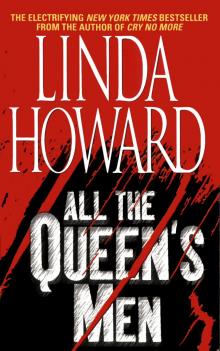 All the Queen's Men
All the Queen's Men Midnight Rainbow
Midnight Rainbow Diamond Bay
Diamond Bay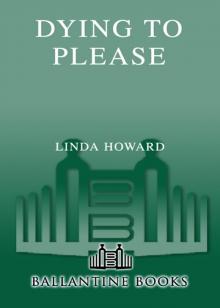 Dying to Please
Dying to Please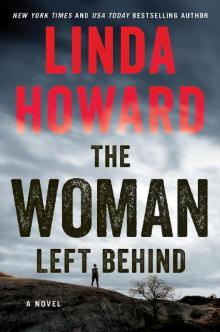 The Woman Left Behind
The Woman Left Behind Come Lie With Me
Come Lie With Me Drop Dead Gorgeous
Drop Dead Gorgeous To Die For
To Die For Ice
Ice Overload
Overload Shadow Woman
Shadow Woman Veil of Night
Veil of Night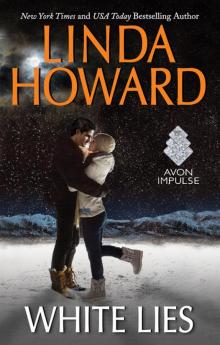 White Lies
White Lies Son of the Morning
Son of the Morning The Complete Mackenzies Collection
The Complete Mackenzies Collection Lake of Dreams
Lake of Dreams DeathAngel
DeathAngel Loving Evangeline
Loving Evangeline Burn
Burn Mackenzie's Magic
Mackenzie's Magic Against the Rules
Against the Rules Burn: A Novel
Burn: A Novel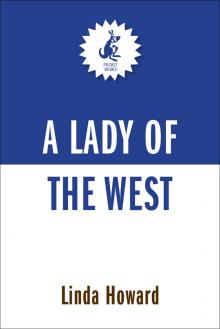 A Lady of the West
A Lady of the West Almost Forever
Almost Forever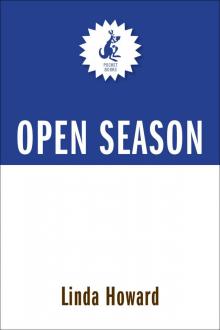 Open Season
Open Season Now You See Her
Now You See Her Prey
Prey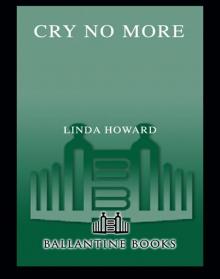 Cry No More
Cry No More Sarah's Child
Sarah's Child Angel Creek
Angel Creek Death Angel
Death Angel Kill and Tell
Kill and Tell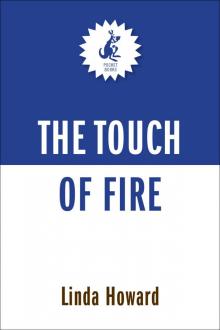 The Touch of Fire
The Touch of Fire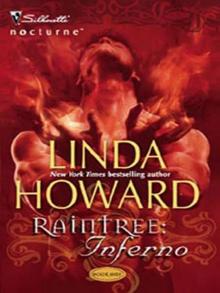 Raintree: Inferno
Raintree: Inferno Killing Time
Killing Time Cover of Night
Cover of Night Tears of the Renegade
Tears of the Renegade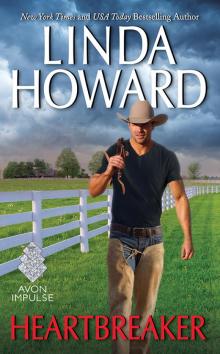 Heartbreaker
Heartbreaker The Cutting Edge
The Cutting Edge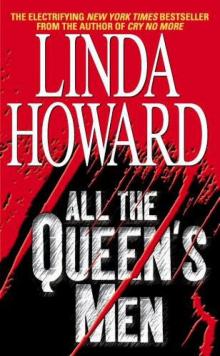 All The Queen's Men cs-2
All The Queen's Men cs-2 Veil of Night: A Novel
Veil of Night: A Novel Blood Born
Blood Born The Complete Mackenzie Collection
The Complete Mackenzie Collection Mackenzie's Magic m-4
Mackenzie's Magic m-4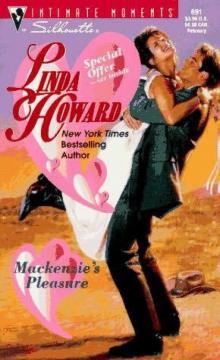 Mackenzie's Pleasure m-3
Mackenzie's Pleasure m-3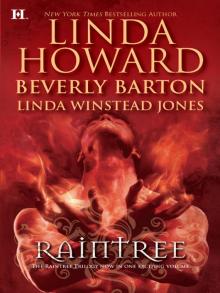 Raintree
Raintree A Game Of Chance m-5
A Game Of Chance m-5 Prey: A Novel
Prey: A Novel Lethal Attraction: Against the RulesFatal Affair
Lethal Attraction: Against the RulesFatal Affair The Raintree Box Set: Raintree: InfernoRaintree: HauntedRaintree: Sanctuary
The Raintree Box Set: Raintree: InfernoRaintree: HauntedRaintree: Sanctuary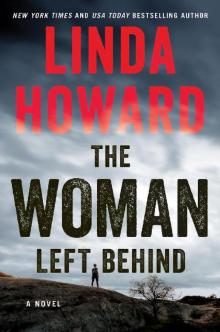 The Woman Left Behind: A Novel
The Woman Left Behind: A Novel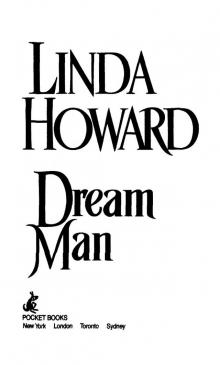 Dream Man
Dream Man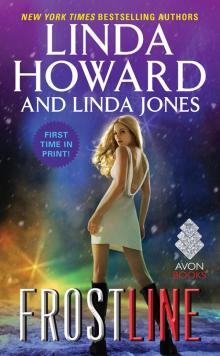 Frost Line
Frost Line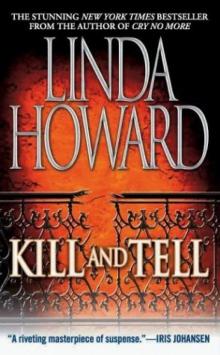 Kill and Tell cs-1
Kill and Tell cs-1 Shadow Woman: A Novel
Shadow Woman: A Novel Mackenzie's Mission
Mackenzie's Mission Strangers in the Night
Strangers in the Night Running Blind
Running Blind